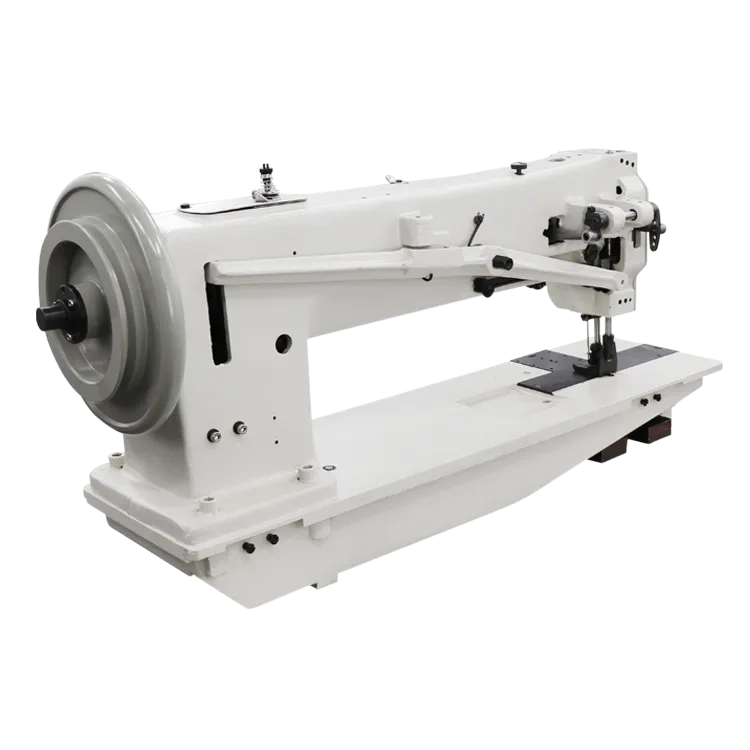bag making machine
The Rise of Bag Making Machines Revolutionizing the Packaging Industry
In recent years, the rapid evolution of technology has transformed various industries, and the packaging sector is no exception. Among the most significant advancements is the development of automated bag making machines. These machines play a pivotal role in producing various types of bags, accommodating a wide range of materials and applications. This article explores the importance of bag making machines, their types, and their impact on efficiency and sustainability in the packaging industry.
Introduction to Bag Making Machines
Bag making machines are specialized equipment designed to manufacture bags from various materials such as plastic, paper, and non-woven fabrics. They operate through automated processes that ensure consistent quality, minimize waste, and enhance production speed. With a growing demand for packaging solutions across sectors such as retail, food service, and e-commerce, bag making machines have become essential tools for manufacturers aiming to meet market needs efficiently.
Types of Bag Making Machines
There are several types of bag making machines, each tailored for specific applications
1. Plastic Bag Making Machines These machines produce bags made from polyethylene or polypropylene. They can create a variety of bag styles, including T-shirt bags, block bottom bags, and drawstring bags. Their versatility makes them popular in grocery stores and retail environments.
2. Paper Bag Making Machines As sustainability becomes a priority for many consumers and businesses, paper bags are gaining popularity. Paper bag making machines can produce flat and satchel paper bags. They often include features for printing and embossing, adding value to the finished product.
3. Non-woven Bag Making Machines Non-woven bags are favored for their durability and reusability. The machines that produce these bags can handle various designs, making them perfect for shopping and promotional purposes. Many consumers prefer non-woven bags as eco-friendly alternatives to plastic.
4. Valve Bag Making Machines These machines create bags with a unique valve feature, commonly used for packaging granular products like fertilizers, chemicals, and animal feed. They ensure efficient filling and sealing, reducing the risk of spillage.
bag making machine

Benefits of Automated Bag Making Machines
The benefits of integrating automated bag making machines into production lines are numerous
1. Increased Efficiency Automated machines significantly speed up the production process. They reduce the time taken from raw material to finished product, allowing manufacturers to fulfill larger orders in shorter timeframes.
2. Cost-Effectiveness While the initial investment may be substantial, the long-term savings in labor costs, material waste, and production time make automated machines a wise financial decision for many businesses.
3. Consistent Quality Automation minimizes human error, ensuring that each bag produced meets high-quality standards. This consistency is crucial for maintaining brand reputation and customer satisfaction.
4. Customization Modern bag making machines offer flexibility in design and size, allowing manufacturers to produce tailor-made bags that meet specific customer requirements. This customization helps businesses stand out in a competitive marketplace.
5. Sustainability With an increasing emphasis on environmental responsibility, manufacturers can use biodegradable materials in their machines. Many newer models allow for the efficient processing of recycled materials, reducing overall waste.
Conclusion
The advent of bag making machines represents a significant shift in the packaging industry. As consumers continue to demand high-quality, sustainable, and customized packaging solutions, these machines are becoming indispensable tools for manufacturers. The combination of efficiency, quality, and sustainability provided by automated bag making machines not only meets the current market demands but also paves the way for future innovations in the packaging sector. As technology continues to advance, we can expect to see even more sophisticated bag making machines that will further enhance production capabilities and ecological responsibility.
-
Boost Production Efficiency with a Pattern Sewing MachineNewsAug.29,2025
-
Industrial Excellence with the Best Heavy Duty Sewing MachineNewsAug.29,2025
-
Precision and Power with the Best Pattern Sewing MachineNewsAug.29,2025
-
Reliable Bulk Packaging Starts With the Right FIBC Sewing MachineNewsAug.29,2025
-
Advanced Packaging Solutions: Elevate Productivity with Jumbo Bag Sewing Machine and Industrial Stitching EquipmentNewsAug.29,2025
-
High-Performance Solutions for Bulk Packaging: FIBC Sewing Machine and MoreNewsAug.29,2025
-
Maximize Efficiency with an Industrial Cylinder Arm Sewing MachineNewsAug.28,2025


























